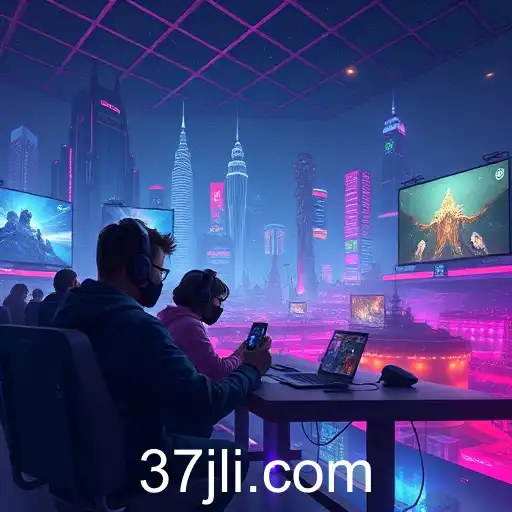
As the year 2025 unfolds, the realm of online gaming continues to thrive, with platforms like 37jli leading the charge in revolutionizing how players interact and engage in digital environments. The gaming landscape is no longer just a playground for entertainment; it has become a vibrant ecosystem that influences aspects of social interaction, culture, and even global economies. This article delves into the phenomenon surrounding online gaming and its far-reaching implications.
The platform 37jli, an epicenter for English-speaking gamers, has dramatically expanded its user base over the last year, becoming a pivotal hub for virtual interactions. With its unique combination of user-friendly interfaces and state-of-the-art multiplayer experiences, players worldwide flock to engage in both casual and competitive scenarios. This growing community exemplifies the shift from passive consumption of content to active participation in expansive virtual worlds.
These online game environments have started to mirror real-world societies, complete with their own economies, social structures, and cultural norms. Players are not just navigating game mechanics; they are forming bonds across geographies, fostering communities that challenge traditional notions of friendship and social networks. Whether through cooperative missions or competitive arenas, the bonds formed in of 37jli's digitally crafted landscapes are as potent as those in physical settings.
Furthermore, the rise of virtual economies within these platforms presents both opportunities and challenges. In-game economies mimic real-world market dynamics, with the purchase and trade of virtual goods often spilling over into real-world transactions. These emerging marketplaces have attracted attention from economists and regulators who seek to understand and manage this intersection between the virtual and the tangible.
The lure of these virtual realms continues to grow, attracting an even more diverse player base in 2025. Game developers are increasingly aware of the desires of their audiences, resulting in games that are more inclusive and representative of varied global cultures and demographics. The role of platforms like 37jli in accommodating these diverse stories and backgrounds cannot be overstated.
As we explore the implications of these digital worlds, it's crucial to consider the societal impacts. Discussions about mental health, screen time, and the influence of digital relationships on real-world interactions are becoming increasingly important. Balancing these dynamics with the rich opportunities provided by online gaming communities sets the stage for ongoing dialogue as the industry continues to evolve.
In conclusion, the year 2025 stands as a testament to the power and potential of online gaming. As 37jli and similar platforms continue to innovate and bring people together, they challenge preconceived notions about social interaction and community building in the digital age. The boundaries between the virtual and real worlds blur further, offering a glimpse into the future of entertainment and community.


